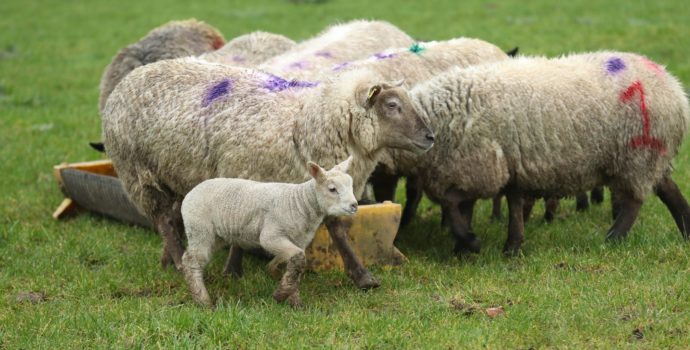Budgetary Measures to Improve Competitiveness and Support Farm Incomes Required in Budget 2018

Launching IFA’s Pre-Budget submission Supporting Farm Incomes – Underpinning Competitiveness in Dublin today, IFA President Joe Healy said Budget 2018 provides an opportunity for the Government to provide direct and positive support to farming enterprises.
“Delivery on these proposals will contribute to tackling low farm incomes, underpinning the contribution of the farming and agri-food sector to the economy, including the Foodwise 2025 targets, and supporting economic activity in rural communities.”
Farming and the agri-food sector continues to deliver significant employment and export growth. Following a difficult second half of 2016, food and drink exports have grown strongly in early 2017, recording growth of 8% in the first four months of the year.
The market disturbance caused by the sterling depreciation is impacting unequally on different Member States and different sectors, depending on their exposure to trade with the UK.
At last month’s National Economic Dialogue, IFA made the case that the Government should be making a strong case at EU level for greater flexibility and an increase in EU State Aid limits. This would give greater scope for Government to directly support affected sectors, such as farming and the agri-food sector, whose competitiveness versus their EU trading partners has been undermined due to the sterling weakness.
The IFA President said farming remains a low-income sector, as shown by the Teagasc farm income figures for 2016. Average farm income in 2016 was just over €24,000, with incomes on livestock and sheep farms significantly below this. In addition, income volatility, through product price, input cost or weather related disturbances provides an ongoing challenge to farm viability.
Joe Healy identified that sufficient funding across the different Rural Development Programme headings to ensure full disbursement of funding during 2018, must be an important element of the next Budget. IFA has also identified further expenditure proposals which will positively impact on farm enterprise competitiveness and will support farm family incomes and viability. Expenditure priorities for farm enterprises and farm families in Budget 2018 are:
- Provision of government-supported low-cost loans for farming enterprises, to fund both ongoing working capital requirements and on-farm investment
- Increased funding for the ANCs to reach €225m, commencing the process of restoring ANC payments to 2008 levels
- Increased funding of €25m for the BDGP and a further €5m funding allocated to the Sheep Welfare Scheme, to support the delivery of additional measures
- An increase in funding for the Fair Deal Scheme to remove the discrimination against farming and other small business assets in the means assessment.
IFA Farm Business Chairman Martin Stapleton said, “Budget 2018 provides an opportunity to address ongoing challenges in farming through the taxation system. These include income volatility, the discrimination between self-employed and employees in the income tax system and the need for ongoing farm investment, intergenerational transfer and farm restructuring”.
In addition, tax measures are required to support and deliver upon Government policy in renewable energy, through the development of renewable energy projects using farmland.
The key priorities identified for farm taxation in Budget 2018 are:
- Income volatility – extension of income averaging where farmer/spouse has additional self-employed income, greater flexibility on ‘step-out’, and provision of a deposit scheme
- Earned Income Tax Credit to be increased to the same level as the PAYE credit
- Retention of consanguinity relief for stamp duty, and extension of relief to all transfers undertaken within Registered Farm Partnership structure
- Farmland under solar panel infrastructure to be classified as a qualifying asset for the purpose of assessment for relief from Capital Acquisitions Tax upon transfer
- Reduction in the VAT rate on animal vaccines as a means to improve herd health.




